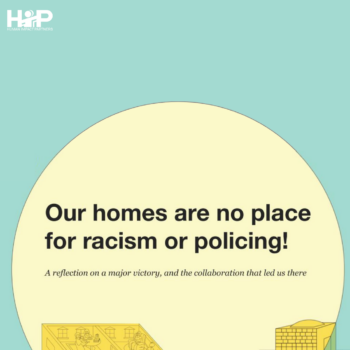| By Marnie Purciel-Hill |
My son had an accident and broke his leg and I found a lump for which a routine biopsy was needed.
When these things happened to my family, I was relieved I had health insurance to help meet our medical needs. But it’s been an expensive and confusing experience – even quality health insurance coverage (procured through my partner’s employer) is proving inadequate at sparing my family the negative health effects of high medical bills. It made me wonder – how has the expansion of health insurance through the Affordable Care Act impacted peoples’ economic security? How much farther do we have to go to ensure that people can access health care without significant financial stress?
While our health issues were serious enough to require treatment, they were not unusual. I had to spend $1,500 (after insurance paid what they would) to discover my lump was, thank goodness, totally fine from a cancer perspective. Not so, from a financial perspective. Then recently, my son was playing with his cousins, fell, and broke his leg. Not sure what the total bill for this is going to be yet, but I’m guessing it also will be around $1,000 after insurance. In the health insurance world, these are probably considered moderate costs for a “consumer” who also pays health insurance premiums every month. But for a household with a tight and perpetually stretched budget like ours, this extra expense causes a great deal of stress.
This financial stress has a number of additional impacts to our family’s health and well-being. My partner and I have to make decisions about the things we will forgo in order to pay these bills. These are not fun conversations and I could see how over time they might end up putting too much stress on a relationship. For couples that separate, there is a cascade of health effects that happen: isolation, depression, anxiety, and negative impacts on children are well documented in the research.
There’s also research that looks at the long-term “economic scarring” that happens (such as during a recession) when families have to make tough choices about spending money on basic needs and medical bills, rather than on things like educational achievement, investments, or starting a small business. When scores of families are forced to make these trade offs (such as during a recession) our whole economy suffers. Our current system of health insurance not only does not protect people’s right to be healthy and productive, but when one of us gets sick or injured in the current system, we all pay.
In HIA, we seldom look at the health impacts of health care policy. We usually focus our policy efforts more upstream, and think of health care as a safety net after upstream efforts have failed. Health care becomes relevant when we aren’t able to change the unhealthy places where we live, work, go to school, and play. Yet through my personal experiences with the financial burdens of health care, I am gaining a different perspective on the greater health impacts of inadequate health insurance. It’s informing my research on the health impacts of financial stress through a new HIA project in our Economic Security Program that I’m leading with our partners, ISAIAH, in Minnesota.
Although the ACA represents a leap forward, we still have a long way to go towards ensuring everyone has health care that doesn’t come with a heavy dose of financial stress. I believe that health care could and should be considered a human right rather than a commodity, as it is now. We should all have the ability to be healthy and lead productive lives, without living in fear of having an accident, or being stricken with an unwanted illness and not being able to afford diagnosis and treatment. We are still far from this ideal.




